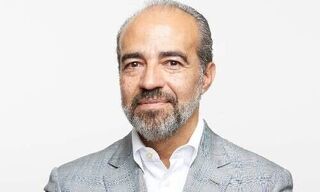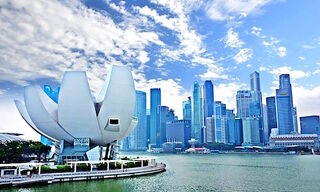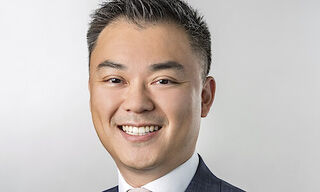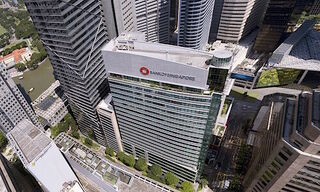Switzerland’s largest bank could easily become overly ambitious after re-organizing Credit Suisse’s investment bank. Will it be able to withstand the dangerous temptation of going down that path? Teodoro Cocca asks in a piece for finews.first.
This article has been published on finews.first, a forum for authors specializing in economic and financial topics.
The top executive management at UBS is working intensively on plans for the new combined entity. Much of the time, it is about what they should exactly do with the assets and businesses of Credit Suisse.
But at certain points, they are probably thinking about something else entirely. What will UBS do with the new financial clout it now has as a result of a surprisingly smooth takeover of its eternal competitor on Paradeplatz?
«It is undoubtedly a one-off in the history of bank mergers»
They were able to take over Credit Suisse at an extraordinarily attractive price - provided there are no ugly surprises out there that we do not yet know about. The structural and cultural fit between both is a given. It is very unusual that a buyer of a business, particularly for one that size, would have those key factors fall right into their lap at once, and it provides any acquirer with an almost insuperable advantage. Moreover, in this case, what we are seeing is undoubtedly the first transaction of its kind in the history of bank mergers.
There are, of course, potential risks. Unexpected risks in lending, derivatives or client assets could prompt an unexpectedly large write-down on Credit Suisse’s balance sheet. Changes in regulation could also be a key risk factor.
But still, once everything is drawn into consideration, it truly looks like UBS got the «deal of a lifetime» and something that may fuel a potential quantum jump, at least in the business sense.
«What will happen?»
UBS has a clear strategy and it is one of the best-positioned major banks in Europe. Public statements from UBS management point towards a shrunken Credit Suisse investment bank, much in the same way that UBS cut down its own franchise after the 2008 financial crisis, which it subsequently managed to successfully master after it itself almost collapsed.
A great deal of capital would be freed up on the balance sheet after the investment bank of its smaller competitor were successfully cut down to size over the course of several years. That would give it new business and growth opportunities. But what will actually happen?
Paradoxically, it could be that UBS benefits internally from a significantly higher cash flow and that it has better access to cheaper sources of assets and deposits than it ever had before. In that, Credit Suisse’s Swiss business is the jewel in the crown.
«The US market always ends up being a minefield for European banks »
Having something like that can also cast an evil spell on the behavior of bank managers. The temptation will be enormous, and it will be very easy to try and use the new financial strength on the balance sheet will to boost some new, future growth strategies.
UBS’s current strategy is heavily tilted towards growth in the US market when it comes to more strongly integrating investment banking services for family offices and wealth management activities for institutionals. It is at this point that UBS could be tempted to use the risker pieces of Credit Suisse’s investment bank to strengthen that part of its growth strategy. But – and there is a big but. The US market has always proven to be a minefield for European banks in that market share is usually only gained with increased risk appetite.
Even in the Asian market, the second most important growth pillar for UBS lies significant danger for an overcapitalized bank. Asian private banking clients are recognized to be particularly risk thirsty, with many apt to ladle their investment strategies with high levels of leverage.
«The cumbersome processes and complex management structures of an international bank»
A bank that gives them those kinds of possibilities is certainly going to be able to grow quickly but it may also be accumulating risks that only come due much, much later. At the end of the day, it will also hinge on the risk appetite of the bank, even in that kind of business. Free capital on the balance sheet can, although it does not have to, fuel risk appetite.
Will UBS be able to learn the lessons from its own past and be able to refrain from overly ambitious growth plans in the future, particularly given its newfound financial prowess? Why not try to compete with the bulge bracket on Wall Street eye-for-eye again?
The cumbersome processes and complex management structures of an international bank would increase the risks in that regard. Resources flow to areas where the profits are higher and where they take on the risk that is assumed to be controllable, even when they are not part of the core business. But the board should not fall into that kind of temptation even when management comes to them maintaining that they never expect to see an opportunity like that again.
«The day will come»
Alarm bells should start ringing on the day that UBS management starts to enthusiastically swarm about the vision of being a global player again. The day will come.
Teodoro D. Cocca has been Professor of Asset and Wealth Management at Johannes Kepler University Linz since 2006. Before that, he worked for several years at Citibank in both investment and private banking, conducted research at the Stern School of Business in New York, and taught at the Swiss Banking Institute in Zurich. In addition, the Swiss with Italian roots is an associate professor of private banking at the Swiss Finance Institute (SFI) in Zurich and acts as a consultant for financial companies and public authorities in Switzerland and abroad.
Previous contributions: Rudi Bogni, Peter Kurer, Rolf Banz, Dieter Ruloff, Werner Vogt, Walter Wittmann, Alfred Mettler, Robert Holzach, Craig Murray, David Zollinger, Arthur Bolliger, Beat Kappeler, Chris Rowe, Stefan Gerlach, Marc Lussy, Nuno Fernandes, Richard Egger, Maurice Pedergnana, Marco Bargel, Steve Hanke, Urs Schoettli, Ursula Finsterwald, Stefan Kreuzkamp, Oliver Bussmann, Michael Benz, Albert Steck, Martin Dahinden, Thomas Fedier, Alfred Mettler, Brigitte Strebel, Mirjam Staub-Bisang, Nicolas Roth, Thorsten Polleit, Kim Iskyan, Stephen Dover, Denise Kenyon-Rouvinez, Christian Dreyer, Kinan Khadam-Al-Jame, Robert Hemmi, Anton Affentranger, Yves Mirabaud, Katharina Bart, Frédéric Papp, Hans-Martin Kraus, Gerard Guerdat, Mario Bassi, Stephen Thariyan, Dan Steinbock, Rino Borini, Bert Flossbach, Michael Hasenstab, Guido Schilling, Werner E. Rutsch, Dorte Bech Vizard, Adriano B. Lucatelli, Katharina Bart, Maya Bhandari, Jean Tirole, Hans Jakob Roth, Marco Martinelli, Thomas Sutter, Tom King, Werner Peyer, Thomas Kupfer, Peter Kurer, Arturo Bris, Frederic Papp, James Syme, Dennis Larsen, Bernd Kramer, Armin Jans, Nicolas Roth, Hans Ulrich Jost, Patrick Hunger, Fabrizio Quirighetti, Claire Shaw, Peter Fanconi, Alex Wolf, Dan Steinbock, Patrick Scheurle, Sandro Occhilupo, Will Ballard, Nicholas Yeo, Claude-Alain Margelisch, Jean-François Hirschel, Jens Pongratz, Samuel Gerber, Philipp Weckherlin, Anne Richards, Antoni Trenchev, Benoit Barbereau, Pascal R. Bersier, Shaul Lifshitz, Klaus Breiner, Ana Botín, Martin Gilbert, Jesper Koll, Ingo Rauser, Carlo Capaul, Markus Winkler, Konrad Hummler, Thomas Steinemann, Christina Boeck, Guillaume Compeyron, Miro Zivkovic, Alexander F. Wagner, Eric Heymann, Christoph Sax, Felix Brem, Jochen Moebert, Jacques-Aurélien Marcireau, Ursula Finsterwald, Michel Longhini, Stefan Blum, Zsolt Kohalmi, Karin M. Klossek, Nicolas Ramelet, Søren Bjønness, Gilles Prince, Salman Ahmed, Peter van der Welle, Ken Orchard, Christian Gast, Jeffrey Bohn, Juergen Braunstein, Jeff Voegeli, Fiona Frick, Stefan Schneider, Matthias Hunn, Andreas Vetsch, Fabiana Fedeli, Kim Fournais, Carole Millet, Swetha Ramachandran, Thomas Stucki, Neil Shearing, Tom Naratil, Oliver Berger, Robert Sharps, Tobias Mueller, Florian Wicki, Jean Keller, Niels Lan Doky, Karin M. Klossek, Johnny El Hachem, Judith Basad, Katharina Bart, Thorsten Polleit, Peter Schmid, Karam Hinduja, Zsolt Kohalmi, Raphaël Surber, Santosh Brivio, Mark Urquhart, Olivier Kessler, Bruno Capone, Peter Hody, Michael Bornhaeusser, Agnieszka Walorska, Thomas Mueller, Ebrahim Attarzadeh, Marcel Hostettler, Hui Zhang, Michael Bornhaeusser, Reto Jauch, Angela Agostini, Guy de Blonay, Tatjana Greil Castro, Jean-Baptiste Berthon, Marc Saint John Webb, Dietrich Goenemeyer, Mobeen Tahir, Didier Saint-Georges, Serge Tabachnik, Vega Ibanez, David Folkerts-Landau, Andreas Ita, Michael Welti, Mihkel Vitsur, Fabrizio Pagani, Roman Balzan, Todd Saligman, Christian Kaelin, Stuart Dunbar, Carina Schaurte, Birte Orth-Freese, Gun Woo, Lamara von Albertini, Ramon Vogt, Andrea Hoffmann, Niccolò Garzelli, Darren Williams, Benjamin Böhner, Mike Judith, Jared Cook, Henk Grootveld, Roman Gaus, Nicolas Faller, Anna Stünzi, Thomas Höhne-Sparborth, Fabrizio Pagani, Guy de Blonay, Jan Boudewijns, Beat Wittmann, Sean Hagerty, Alina Donets, Sébastien Galy, Roman von Ah, Fernando Fernández, Georg von Wyss, Stefan Bannwart, Andreas Britt, Frédéric Leroux, Nick Platjouw, Rolando Grandi, Philipp Kaupke, Gérard Piasko, Brad Slingerlend, Dieter Wermuth, Grégoire Bordier, Thomas Signer, Brigitte Kaps, Gianluca Gerosa, Christine Houston, Manuel Romera Robles, Fabian Käslin, Claudia Kraaz, Marco Huwiler, Lukas Zihlmann, Nadège Lesueur-Pène, Sherif Mamdouh, Harald Preissler, Taimur Hyat, Philipp Cottier, Andreas Herrmann, Camille Vial, Marcus Hüttinger, Ralph Ebert, Serge Beck, Alannah Beer, Stéphane Monier, Ashley Simmons, Lars Jaeger, Claude Baumann, Shanna Strauss-Frank, Teodoro Cocca, Bertrand Binggeli, Marionna Wegenstein, George Muzinich, Jian Shi Cortesi, Razan Nasser, Nicolas Forest, Joerg Ruetschi, Reto Jauch, Bernardo Brunschwiler, Charles-Henry Monchau, Florin Baeriswyl, Philip Adler, Brigitte Kaps, Andrew Isbester and Ha Duong.

























